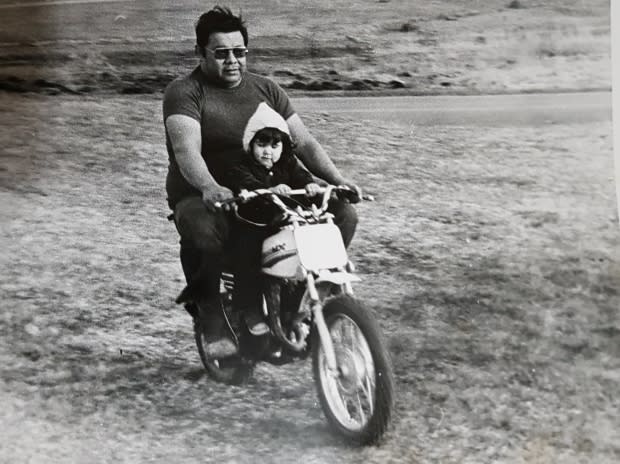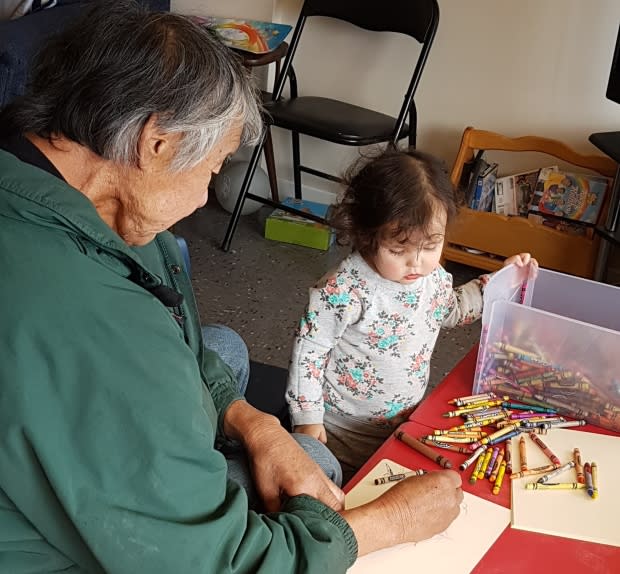James Simon remembered as 'reluctant hero' of Mi'kmaw treaty rights
James Matthew "Jim" Simon, who's been called a "reluctant hero" for being one of the first to have Aboriginal treaty rights recognized by the Supreme Court of Canada, died Thursday. He was 71.
An obituary released Friday describes Simon as a devoted father and grandfather who loved history and telling stories and who was "a fountain of knowledge." Notice of his passing, circulated by Sipekne'katik First Nation's Brian Dorey, likened his legacy to that of "Rosa Parks, Martin Luther King Jr and Nelson Mandela."
"My father was a humble man, he was simple and worshipped his family," Simon's daughter, Andrea Kingham told CBC Friday.
Kingham said her father had given her an "amazing gift," choosing to come and live with her family in Lantz, N.S., since the end of October. He'd been in hospital since June of this year.
She said her father, known for his love of furniture making, hunting and fishing, had certainly left his mark. She noted his role in building Halifax's McDonald Bridge, and of course, his ground-breaking advocacy for First Nations rights.
"He was always on the go," she said. "Always a man with a plan."

In 1980, RCMP charged Simon during a traffic stop outside his community of Sipekne'katik First Nation in Nova Scotia for possessing a rifle and shotgun shells.
Both were violations under the now-repealed Nova Scotia Lands and Forests Act.
Simon argued that, as a Mi'kmaw, he had a right to hunt under the 1752 Peace and Friendship Treaty signed between Mi'kmaw Grand Chief Jean Baptiste Cope and the Crown.
The provincial court initially decided that the treaty was not valid and found Simon guilty of the charges. Simon challenged the decision all the way to the Supreme Court of Canada.
Nova Scotia lawyer Bruce Wildsmith, who represented Simon during the appeal, used Section 4 of the treaty in Simon's defence. It states that "Indians shall not be hindered from, but have free liberty of hunting and fishing."
In 1985, the Supreme Court affirmed that right and acquitted Simon of the charges. The case has been held up as a benchmark for Mi'kmaq rights and treaty recognition.
"It was major breakthrough," said Wildsmith in an interview Thursday.
"The fact that the treaty was upheld, and is continuing in its validity, makes Mr. Simon a figure of historic proportions in the law of Canada and the history of Indigenous Peoples."

A treaty legacy
"After the Simon case, everything changed," said Jaime Battiste, a Mi'kmaw lawyer who's currently at the helm of the Treaty Education initiative in Nova Scotia.
"Policies had to reflect treaty rights. Every legislation they came down with had to take into account that our Mi'kmaw treaties were valid, and that was a significant turning point for the Mi'kmaq."
Battiste said before Simon took his case to the Supreme Court, there was no arguing with Canada.
"They could tell you to go pound sand," he said. "His case reversed all of the years of treaty denial."
A video by the Nova Scotia government highlights the impact of the Simon decision:
Battiste attended a 30-year anniversary of the Simon decision in 2015, where Simon was presented with an award by Mi'kmaw leaders. He said it was his first chance to get to know Simon, and that his humbleness stood out.
"He didn't want to make a big deal of it," said Battiste.
"He just wanted a table for his family and a little travel money to get there. He was a quiet kind of guy — the reluctant hero of the Mi'kmaw nation."
Battiste said Simon's perseverance to appeal his case set an example for Mi'kmaq who would follow Simon's lead in their own battles for rights recognition.

"After his case, still the government didn't acknowledge that our treaty right existed," Battiste said.
"They tried to say that the only right that was recognized by the Supreme Court belonged to James Matthew Simon. Despite everything they told him and did to the Mi'kmaq of his generation, he continued to practise his rights. Because of that, we have Treaty Education. Now we have a province that at least says 'We're all treaty people.'"
A funeral service will be held on Monday at St. Kateri Roman Catholic Church in Sipekne'katik.

